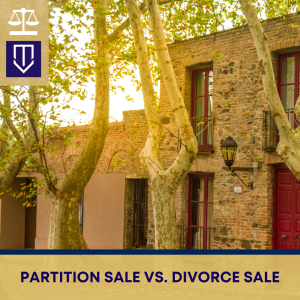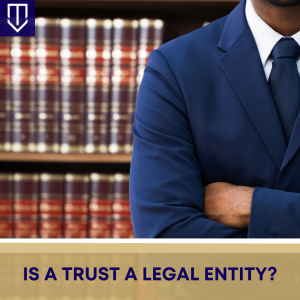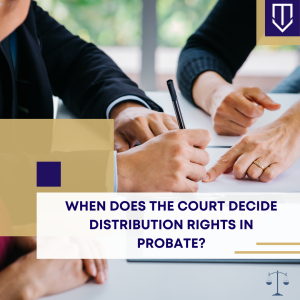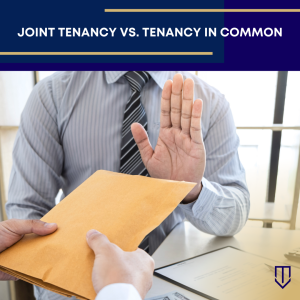 Yes. California law allows a co-owner to take out a mortgage without the other co-owners consent or knowledge.
Yes. California law allows a co-owner to take out a mortgage without the other co-owners consent or knowledge.
Co-owning property with other parties can be quite a responsibility that can be difficult to manage. One particularly stressful aspect of managing property is managing the debt that comes with financing the property. Some parties may even want to take out more debt without letting their fellow co-owners know. If such a debt or encumbrance on the property is taken, it is still enforceable and allowable and can result in the sale of the entire property.
 California Partition Law Blog
California Partition Law Blog


 Partitions sales and divorce sales are two different ways that a property can be sold. One difference between the two is that in a partition sale, the court usually decides the proportion of ownership and how the proceeds are distributed among the owners, while in a divorce sale, the court generally must divide the property equally. Another difference is that the divorce sale process is similar to a normal real estate sale. Both sales can be determined informally among the parties or ordered by a court.
Partitions sales and divorce sales are two different ways that a property can be sold. One difference between the two is that in a partition sale, the court usually decides the proportion of ownership and how the proceeds are distributed among the owners, while in a divorce sale, the court generally must divide the property equally. Another difference is that the divorce sale process is similar to a normal real estate sale. Both sales can be determined informally among the parties or ordered by a court.  There are several provisions in real property sale agreements that can affect a party’s legal rights. One such provision is an “as-is” provision, which is often included in contracts for the sale of real property. It is important for parties to keep on the lookout for such provisions so that they are aware of their legal rights in any possible litigation.
There are several provisions in real property sale agreements that can affect a party’s legal rights. One such provision is an “as-is” provision, which is often included in contracts for the sale of real property. It is important for parties to keep on the lookout for such provisions so that they are aware of their legal rights in any possible litigation. In every property co-owned by two or more persons, there are common costs. Common costs are those costs for the property that are common to all owners or for the common benefit of all owners. In California, cotenants are required to pay for their portion of the common costs. Therefore, cotenants must pay for their share of expenses to operate and maintain the property. The portion of common costs one must pay depends on the ownership interest of that cotenant.
In every property co-owned by two or more persons, there are common costs. Common costs are those costs for the property that are common to all owners or for the common benefit of all owners. In California, cotenants are required to pay for their portion of the common costs. Therefore, cotenants must pay for their share of expenses to operate and maintain the property. The portion of common costs one must pay depends on the ownership interest of that cotenant. “A trust is any arrangement which exists whereby property is transferred with an intention that it be held and administered by the transferee for the benefit of another.” (
“A trust is any arrangement which exists whereby property is transferred with an intention that it be held and administered by the transferee for the benefit of another.” ( Generally, a co-owner of real property may commence an action in a partition. Owners of an estate of inheritance, a life estate, or an estate for years who hold such interest concurrently or in successive estates may seek to
Generally, a co-owner of real property may commence an action in a partition. Owners of an estate of inheritance, a life estate, or an estate for years who hold such interest concurrently or in successive estates may seek to  When a person passes away and leaves behind the property, their property must first pass through the probate process before being passed down to family members and loved ones. Essentially, the probate process is a legal process that determines the execution of the estate of someone who has passed away. Moreover, during the probate process, the court appoints an executor or an administrator to administer the deceased’s estate. Therefore, probate property refers to any assets or property left behind by a deceased person that passes through the probate process.
When a person passes away and leaves behind the property, their property must first pass through the probate process before being passed down to family members and loved ones. Essentially, the probate process is a legal process that determines the execution of the estate of someone who has passed away. Moreover, during the probate process, the court appoints an executor or an administrator to administer the deceased’s estate. Therefore, probate property refers to any assets or property left behind by a deceased person that passes through the probate process.  For family members of a deceased loved one, the most important part of probate proceedings is the final distribution of the estate. This occurs once the estate’s debts and obligations have been satisfied, and it serves to more or less end the probate of the estate.
For family members of a deceased loved one, the most important part of probate proceedings is the final distribution of the estate. This occurs once the estate’s debts and obligations have been satisfied, and it serves to more or less end the probate of the estate.  Following the explosive split between the two stars in the hit reality show, “Vanderpump Rules,” many are left wondering what will become of the couple’s $2.2 million dollar home. Prior to their split, Ariana Madix and Tom Sandoval bought a farmhouse-style home in 2019 and took their time to renovate the Property into their dream home.
Following the explosive split between the two stars in the hit reality show, “Vanderpump Rules,” many are left wondering what will become of the couple’s $2.2 million dollar home. Prior to their split, Ariana Madix and Tom Sandoval bought a farmhouse-style home in 2019 and took their time to renovate the Property into their dream home.  A property’s legal description is an essential element of any property transfer, and it serves as the basis for most property-based lawsuits.
A property’s legal description is an essential element of any property transfer, and it serves as the basis for most property-based lawsuits.